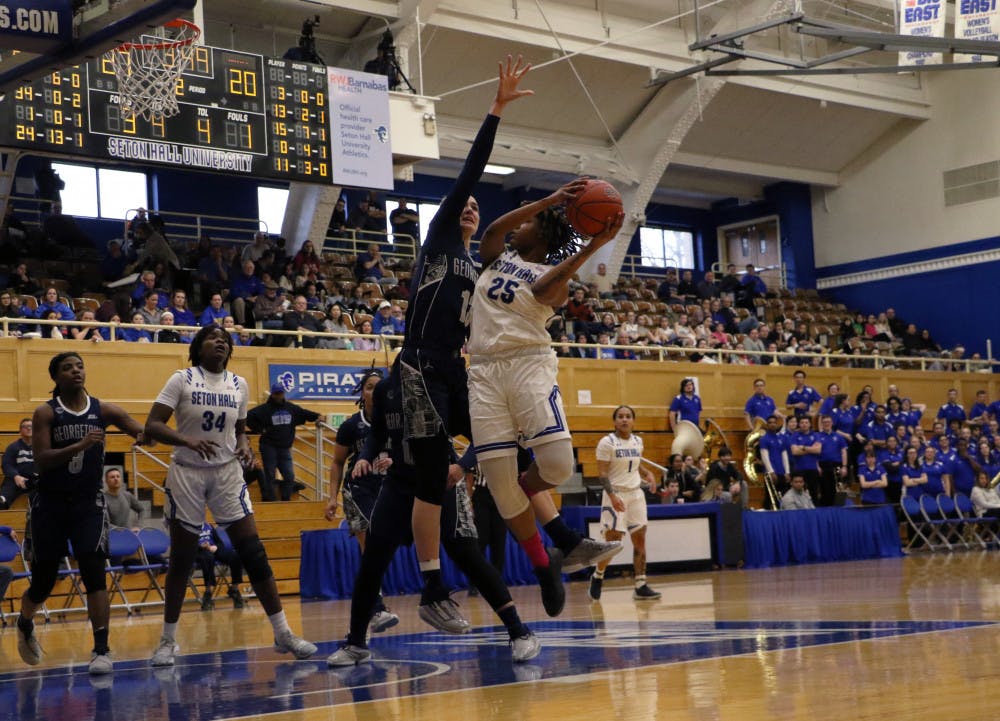A Faculty Senate resolution asking that the presidential search be opened to candidates who are not priests has been rejected by the university's board of regents, and members of the Faculty Senate expressed their disappointment at the decision.
Political science professor W. King Mott, chairman of the Faculty Senate, said the Senate passed the resolution because "we want the best person that we can find for this position." He added: "This is a chief executive officer. This is a manager."
Under university bylaws, the president of Seton Hall must be a Roman Catholic priest. However, there have been laymen – people who are not clergy – who have served as presidents in the past. As The Setonian reported in July, the first lay president was Robert T. Conley, in 1977, and Edward D'Alessio served as a lay president from 1980-1984.
"Obviously a lay person knowledgeable and deeply committed to the Catholic mission of the university could do an excellent job as the president of a Catholic university," said Msgr. Richard Liddy, who served as chancellor in 1990. "Nevertheless, the special connection of Seton Hall to the archdiocese for 150 years would make the choice of a Catholic priest for this position very fitting."
Mott said that the Faculty Senate understood the decision of the board, but added that "we disagree, we disagree strongly, and not because we are anti-Catholic."
He said that the students and faculty are the "longest- and strongest-serving citizens" of Seton Hall's academic community. "Administrators come and go, but faculty and students are here and we know this institution and so we want it to succeed," he said.
"I'm sure there are wonderful Catholic priests who are quite accomplished people, but they do not have the credentials to manage an institution as complex as a university of this size," Mott said. "We want to make sure that the regents and the managers of this institution understand that we are watching this."
A list of 14 credentials for a presidential candidate was compiled by Isaacson Miller, the firm hired to help the presidential committee identify qualified individuals.
Mott said that if candidates presented by the presidential search committee do not meet all of the credentials, faculty members are prepared to take action.
"Faculty actually has considered would we vote ‘no confidence' in the process," Mott said. "to the last person, there was unanimous consent in the Senate, which includes representatives from the School of Theology, that of course, if we felt the credentials were not in place, we would pursue it with enthusiasm."
He added that some of his faculty colleagues have even discussed the possibility of a strike, or perhaps refusing to attend commencement, should the Faculty Senate object to the slate of candidates.
Mott emphasized that while the Faculty Senate is watching the selection process and will continue to be involved, students also should be aware that their opinions on the next president need to be heard as well.
"We as a faculty have so much weight, but the students have just as much weight and probably then some," Mott said. "Students should be willing to take on the challenge that the credentials of the (new) president need to be sufficient."
According to information posted on the presidential search committee's Web site, the announcement of semi-finalists for the position is expected in early March.





